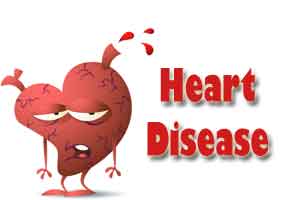- Home
- Editorial
- News
- Practice Guidelines
- Anesthesiology Guidelines
- Cancer Guidelines
- Cardiac Sciences Guidelines
- Critical Care Guidelines
- Dentistry Guidelines
- Dermatology Guidelines
- Diabetes and Endo Guidelines
- Diagnostics Guidelines
- ENT Guidelines
- Featured Practice Guidelines
- Gastroenterology Guidelines
- Geriatrics Guidelines
- Medicine Guidelines
- Nephrology Guidelines
- Neurosciences Guidelines
- Obs and Gynae Guidelines
- Ophthalmology Guidelines
- Orthopaedics Guidelines
- Paediatrics Guidelines
- Psychiatry Guidelines
- Pulmonology Guidelines
- Radiology Guidelines
- Surgery Guidelines
- Urology Guidelines
EXCEL TRIAL: Stents, bypass surgery equally safe, effective in left main heart disease

A major international study has found that drug-eluting stents, a less-invasive alternative to bypass surgery, are as effective as surgery for many patients with a blockage in the left main coronary artery.
Findings from the EXCEL (Evaluation of XIENCE versus Coronary Artery Bypass Surgery for Effectiveness of Left Main Revascularization) trial were published this morning online in the New England Journal of Medicine and presented at the annual Transcatheter Cardiovascular Therapeutics conference in Washington, DC. The trial research team included interventional cardiologists and cardiac surgeons from 126 centers in 17 countries.
Coronary artery bypass graft (CABG) surgery has long been considered the definitive treatment for patients with left main coronary artery disease (LMCAD), in which the artery that supplies oxygen-rich blood to most of the heart muscle is clogged with atherosclerotic plaque. About two-thirds of all LMCAD patients have mild to moderate disease in the remainder of the coronary arteries.
"Our study has shown that many patients with left main coronary artery disease who prefer a minimally invasive approach can now rest assured that a stent is as effective as bypass surgery for at least 3 years, and is initially safer, with fewer complications from the procedure," said first author Gregg W. Stone, MD, professor of medicine at Columbia University Medical Center and director of cardiovascular research and education at the Center for Interventional Vascular Therapy at NewYork-Presbyterian/Columbia.
Stents, which are placed into the diseased artery via a catheter that is inserted through a small opening in a blood vessel in the groin, arm, or neck, are a less-invasive treatment option for many people with coronary artery disease. However, coronary artery bypass surgery (CABG) has long been considered the definitive treatment for patients with LMCAD, which affects a large portion of the heart muscle. Previously, randomized clinical trials suggested that first-generation drug-eluting stents, which release antiproliferative medications to prevent the artery from becoming re-occluded after stent placement, might be appropriate for patients with LMCAD without extensive blockages in the remainder of the heart arteries. The trial results, however, were inconclusive. "Since that time, stents have gotten better, and so has cardiac bypass surgery," said Dr. Stone. "That required us to take a fresh look at the relative safety and effectiveness of the two approaches."
In the current study, 1,905 patients with LMCAD and low or intermediate coronary artery disease complexity (as determined by the SYNTAX score, an angiographic tool for measuring disease severity) were randomized to receive a drug-eluting stent that releases the antiproliferative agent everolimus (XIENCE, made by Abbott Vascular of Santa Clara, CA) or bypass surgery. The patients were followed for at least two years, with a median follow-up of three years.
"We found that approximately 15 percent of patients in both groups had a heart attack, stroke, or died within three years," said Dr. Stone, lead author of the paper. "In other words, stents were equally effective as bypass surgery."
The researchers also analyzed what happened to the patients in the first 30 days after treatment, when serious complications are most likely to occur. Within that period, stent patients had a significantly lower incidence (4.9 percent) of death, stroke, heart attack, or revascularization than those who had bypass surgery (7.9 percent). In addition, fewer stent patients had major bleeding, infections, kidney failure, or severe abnormal heart rhythms compared to those treated with surgery.
The researchers reported that bypass surgery should still be considered standard therapy for those with LMCAD and extensive blockages in the remainder of the heart arteries, although the study did not include patients with severe disease.
"Our study establishes stents as an acceptable or preferred alternative for patients with LMCAD and low or moderate disease complexity in the other 3 coronary arteries -- about two-thirds of all LMCAD patients," said Dr. Stone. "While bypass is still considered a more durable repair, patients and doctors may prefer a percutaneous treatment approach, which is associated with better upfront results, fewer complications, and quicker recovery."
You can read the full Article by clinking on the clink :
Eugene Braunwald. Treatment of Left Main Coronary Artery Disease. New England Journal of Medicine, 2016; DOI: 10.1056/NEJMe1612570

Disclaimer: This site is primarily intended for healthcare professionals. Any content/information on this website does not replace the advice of medical and/or health professionals and should not be construed as medical/diagnostic advice/endorsement or prescription. Use of this site is subject to our terms of use, privacy policy, advertisement policy. © 2020 Minerva Medical Treatment Pvt Ltd